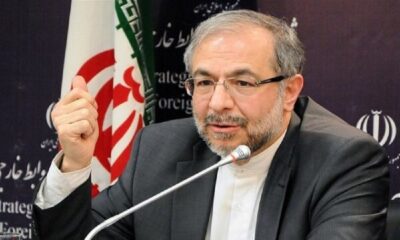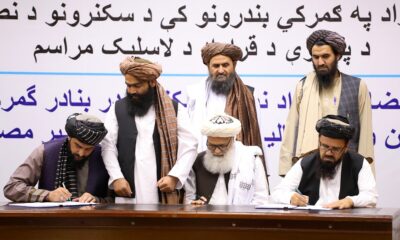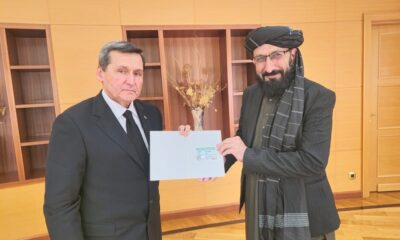Latest News
Daesh militants moving from Middle East to Afghanistan: SCO chief
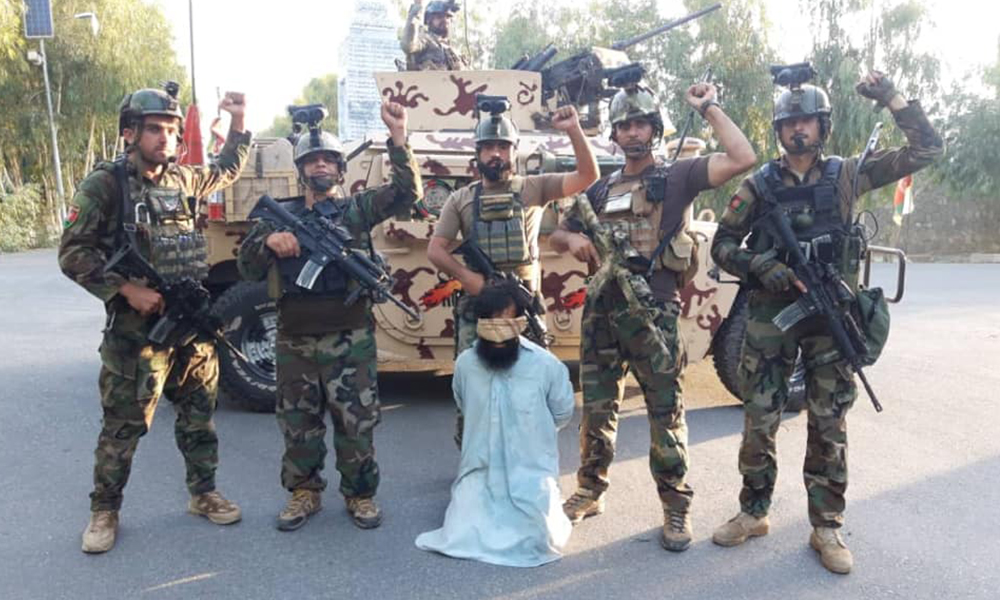
The secretary-general of the Shanghai Cooperation Organization (SCO) Vladimir Norov said on Friday ISIS (Daesh) militants have moved to Afghanistan from the Middle East and posed a threat to regional security.
Speaking at a webinar organized by the Islamabad Policy Research Institute, Norov said he was concerned about the deteriorating situation along the border regions of Afghanistan.
Norov said: “According to the SCO regional anti-terrorist structure, the numbers of fighters arriving in the north of the country [Afghanistan] are growing.”
These militants were moved from Syrian and Iraqi conflict zones and posed a threat to the SCO member states, he added.
Norov also said that Daesh members use information and communication technologies in Afghanistan to promote the ideology of terrorism and manage the terror group’s sleeper cells.
Jumakhon Giyosov, the SCO Director of the Executive Committee of the Regional Anti-Terrorist Structure, also said the growing number of Daesh militants in Afghanistan was a serious threat to the region.
“There is an increase in the number of militants arriving in northern Afghanistan, whose leaders are actively interacting with the leaders of the other terrorist organizations,” Giyosov said.
He added that the transfer of experienced militants from Syria to Afghanistan has posed threats to the region including Central Asia.
This comes after security sources confirmed earlier this month that China and Tajikistan have increased the number of border troops and outposts along their borders with Afghanistan.
An Ariana News reporter also reported having seen the increase in military presence after flying over the area in a helicopter.
According to border guards in Badakhshan, the two neighboring countries have ramped up their military presence in case the Daesh threat increases should a peace deal be sealed with the Taliban.
Latest News
Migration problem cannot be solved by building walls: Mousavi
The diplomat said on X that migration is a global problem and as long as there is poverty and injustice, there will be migration.
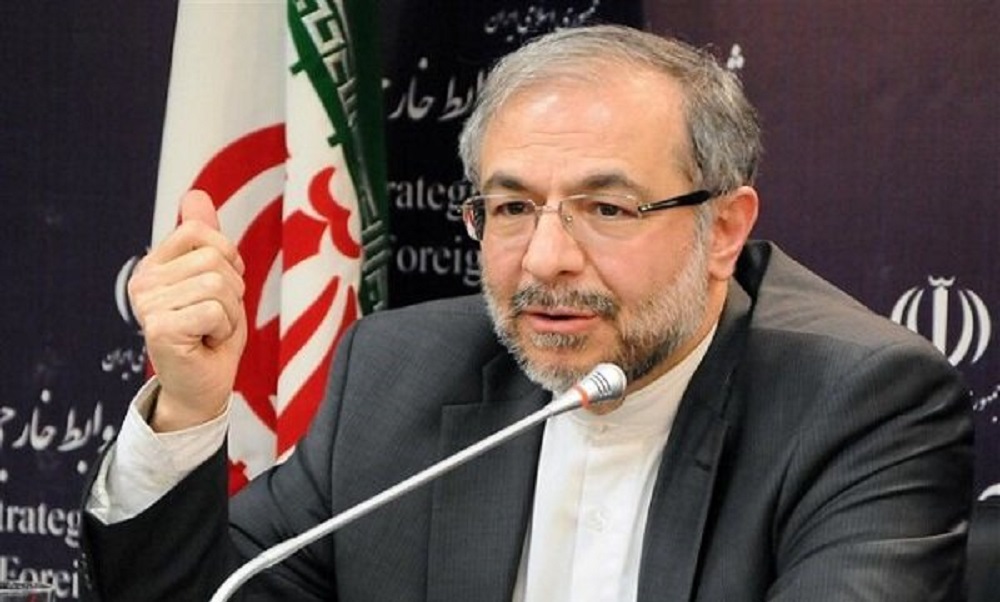
Seyyed Rasoul Mousavi, an assistant to Iran’s foreign minister, argued on Friday that the problem of migration cannot be solved by building walls on the border, adopting strict policies, and inhuman treatment of migrants.
The diplomat said on X that migration is a global problem and as long as there is poverty and injustice, there will be migration.The diplomat said on X that migration is a global problem and as long as there is poverty and injustice, there will be migration.
“Immigration is a major international problem. Governments have failed to solve this problem by building walls and strict anti-immigration policies and inhumane anti-immigrant approaches. The truth is bitter, but we know that as long as there is poverty, backwardness and unbalanced development among countries, there will be a problem of migration,” he said.
The statement comes after Iranian President-elect Massoud Pazeshkian said during his election campaign that he would shut the borders to Afghan migrants.
Latest News
German foreign minister criticizes promise to deport Afghans
She said that violent criminals have “lost their right to protection,” however, one should not suggest that the problem of dangerous people can be solved by “quickly” deporting them to Afghanistan or Syria.

German Foreign Minister Annalena Baerbock has indirectly criticized Chancellor Olaf Scholz and Interior Minister Nancy Faeser for promising to deport Afghan or Syrian criminals quickly.
“I believe that, especially in such uncertain times, it is not a contribution to security if you promise things that you then no longer know quite how you can actually keep the next day,” Baerbock said at an event in Hamburg, without mentioning Scholz or Faeser by name.
She said that violent criminals have “lost their right to protection,” however, one should not suggest that the problem of dangerous people can be solved by “quickly” deporting them to Afghanistan or Syria.
Baerbock also warned again against allowing the Islamic Emirate of Afghanistan (IEA) to dictate the conditions for taking back criminals.
“That’s why I’m careful not to promise things that I don’t know how to implement,” she added.
German Chancellor Olaf Scholz vowed last month that Germany will start deporting criminals from Afghanistan and Syria again after a knife attack by an Afghan immigrant left one police officer dead and several other people injured.
Germany’s interior minister Nancy Faeser also said Germany was considering deporting Afghan migrants who posed a security threat back to Afghanistan.
IEA, however, called on Germany to avoid deportation of Afghans to a third country, but address the matter through normal consular engagement.
Related stories:
German government discusses deportations to Afghanistan via Uzbekistan
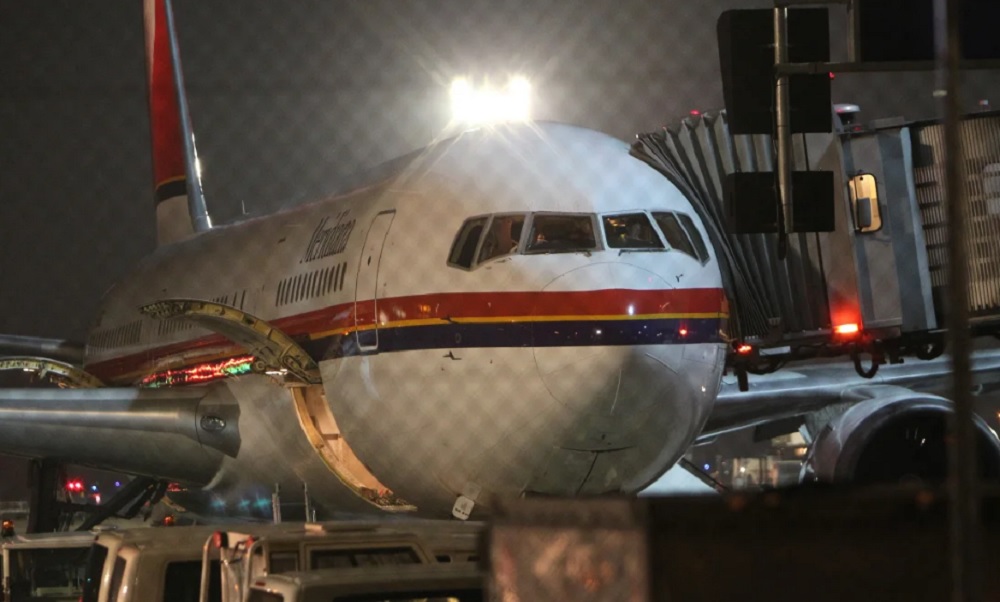
IEA urges Germany to avoid deportation of Afghans to third country
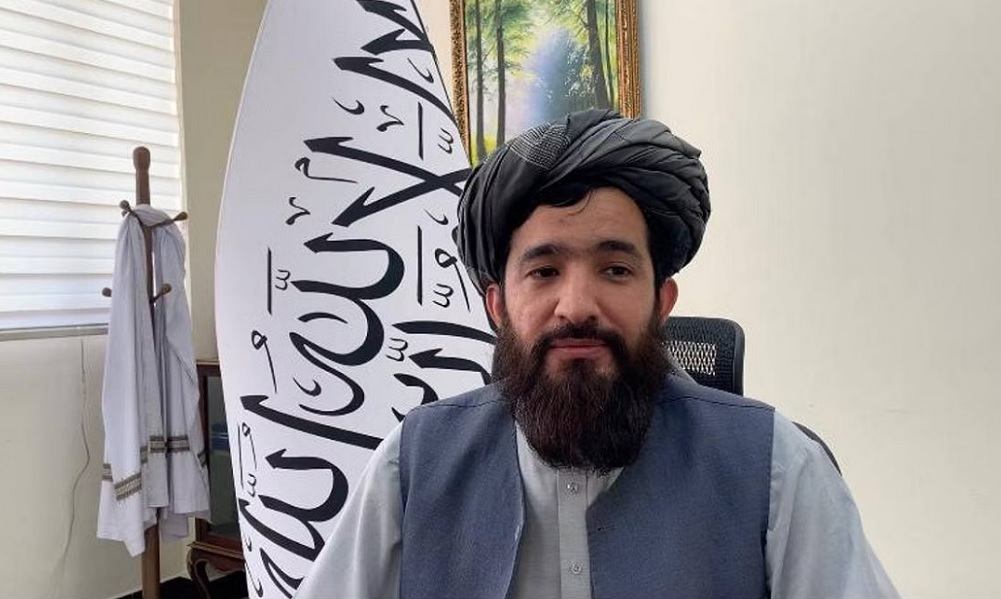
Latest News
Turkmenistan’s foreign minister accepts IEA envoy
Meredov said at a ceremony on the occasion that Turkmenistan and Afghanistan are planning to implement major projects, so it is necessary to increase the level of diplomatic relations.
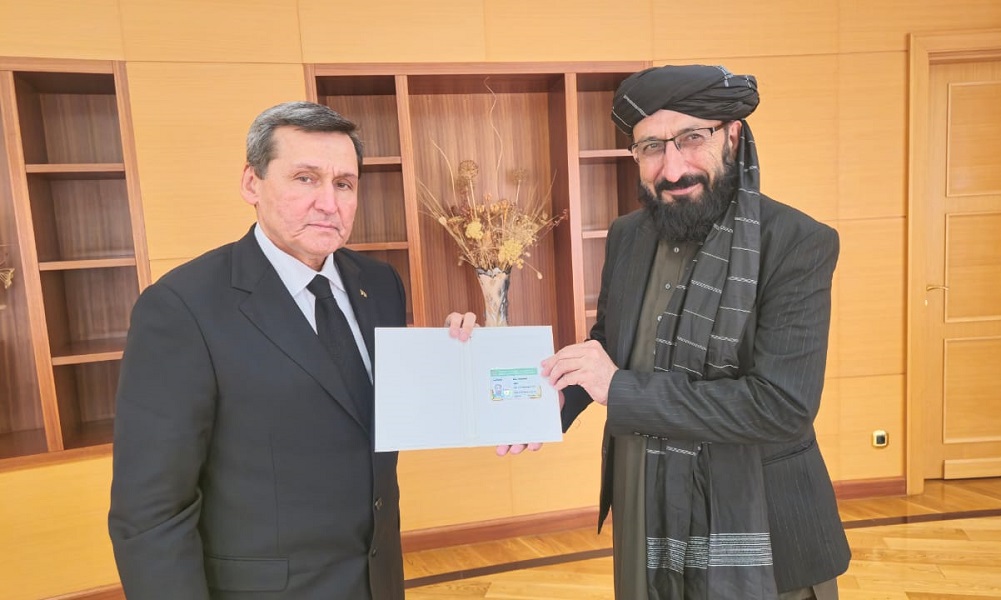
Rashid Meredov, Deputy Chairman of the Council of Ministers and Minister of Foreign Affairs of Turkmenistan, has accepted Fazl Mohammad Sabir as the Charge d’Affaires of the Embassy of Islamic Emirate of Afghanistan (IEA) in Ashgabat.
According to a statement from the Ministry of Foreign Affairs of Afghanistan, Meredov said at a ceremony on the occasion that Turkmenistan and Afghanistan are planning to implement major projects, so it is necessary to increase the level of diplomatic relations.
He expressed hope that with the joint diplomatic efforts of the two countries, the practical work of the TAPI gas pipeline, TAPI power transmission and railway between Torghundi and Herat will begin soon.
The Islamic Emirate took control of Afghanistan in August 2021, but no country has recognized it as a government.
But some countries in the region have established closer relations with the Islamic Emirate than others.
In December last year, Chinese President Xi Jinping accepted Asadullah Bilal Karimi’s credentials as Afghanistan’s ambassador to Beijing.
Related stories:
China’s president accepts credentials for Afghanistan’s envoy to Beijing
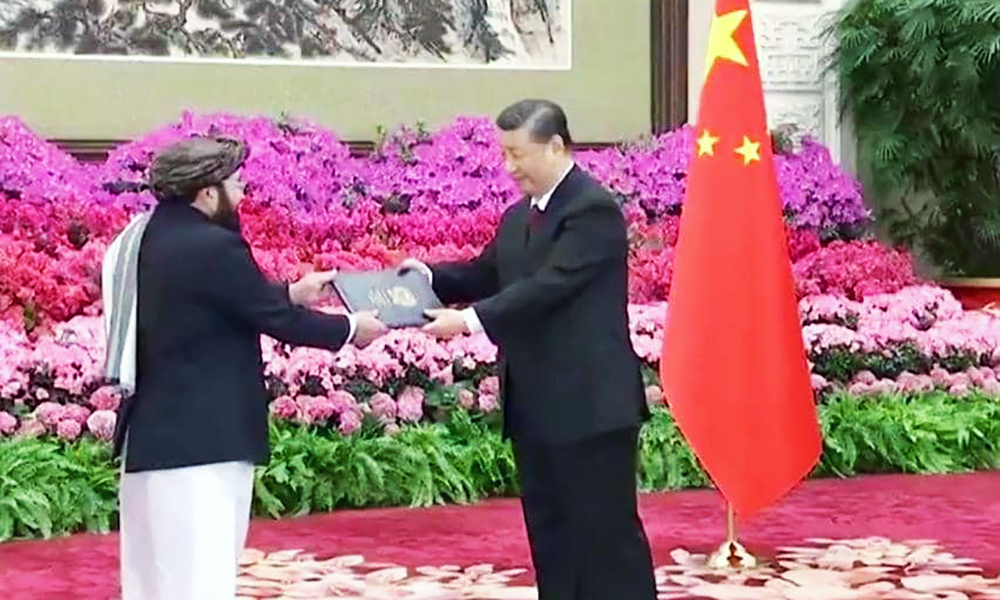
Russia continues to work on removing IEA from list of banned groups: Kabulov
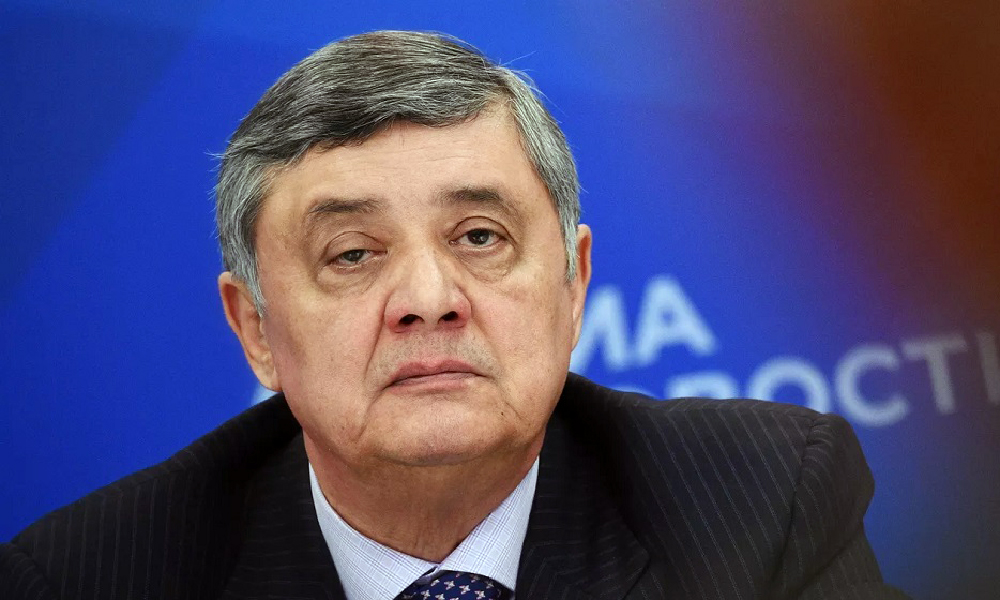
-

 Sport4 days ago
Sport4 days agoOlympics finally here; What you need to know
-

 Health4 days ago
Health4 days agoHealth partners provide services 589,205 people in Afghanistan in last month
-

 Business5 days ago
Business5 days agoConference on Islamic microfinance kicks off in Kabul
-

 Latest News4 days ago
Latest News4 days agoAfghanistan’s Hajj ministry confirms death of 27 pilgrims in Mecca and Medina
-

 Sport4 days ago
Sport4 days agoACB proposes ODI fixtures against top-tiered teams
-
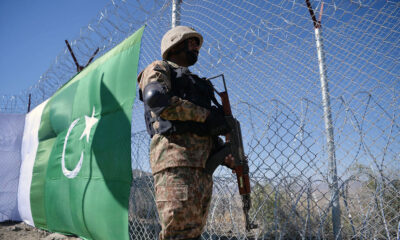
 Latest News4 days ago
Latest News4 days agoIslamabad claims three terrorists killed at Pakistan-Afghanistan border
-

 Latest News5 days ago
Latest News5 days agoPakistan blames Afghanistan for its security failures: Fazl-ur-Rahman
-
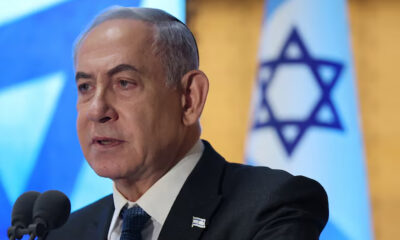
 World4 days ago
World4 days agoNetanyahu says Israel will be a key US ally whoever replaces Biden




